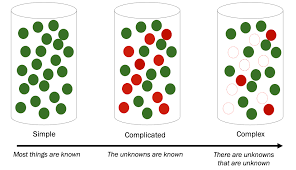 July 2025
July 2025
Institutions everywhere struggle to provide services expected by those they service while dealing with increasing demands. Condo boards struggle to deal with these same challenges.

The modern high-rise condominium building is complex compared to a single-family home. There are large numbers of people with varying expectations and beliefs. Many building systems need to be managed.
Condominium communities, particularly those who have failed to establish condo fees at a level necessary to maintain their home, are challenged to maintain building systems. They struggle with financial shortfalls, building system failures, security and cleanliness all of which degrade as financial difficulties increase. While higher condo fees would provide the resources to address many of these problems, condo boards fear raising fees and upsetting owners.
Top-Down Approach to Management
Too many condominium communities take a top-down approach to management. Directors make decisions. The condominium manager implements. Reaching out to others is a last resort that does not consider the knowledge, expertise or experiences of staff or building residents. This explains why so many initiatives fail and money is wasted.
Experts… but in other Fields
Condo directors are often experts but only in the content of their own specialties. They may be health care specialists, engineers, lawyers or real estate agents. Few have an expert understanding of how to manage and work within organizations such as a condominium corporation. Collaboration, building trust, communication, planning and strategy are foreign skills they have never needed to develop.
Time for a Rethink
A rethink in the way condominium communities manage their operations is necessary if owners are to trust the individuals they elect to manage their home. Continuing along the same path is not sustainable and leads to the dreaded special assessment for addressing major work that should have been taken care of earlier.
The real problem is that we have people managing condominium communities through emotion and belief rather than benefiting from facts, technology and more efficient systems.

Problems and concerns handled by condo boards can be categorized as simple, complicated and complex. A simple problem has a known cause and an obvious solution. It is easily dealt with using practices everyone agrees on and is based on experience. Simple problems are easily addressed by most condo boards.
A complicated problem can have multiple correct solutions that are not obvious. Analysis and expertise are needed to better understand the problem and identify a solution. Complicated problems can be addressed by condo boards comprised of capable individuals with a diversity of specific and general management and technical skills.
Complex problems don’t have a defined solution.
They are nearly impossible to predict, and it can be difficult to anticipate the effect of certain actions. Even as a condo board pauses to consider the problem, dynamics continue to change. A water problem continues to worsen or a financial shortfall grows even as the board considers how to deal with it. Time is not on the side of a condo board trying to figure things out and failing to take some sort of action. Solving these problems requires learning, experimentation and effective delegation. They can only be addressed by highly capable condo boards taking time to learn about an issue, experiment with possible solutions, and delegation once a viable solution is identified. There needs to be a willingness to commit time to the issue and make mistakes along the way.
Confusing Complex with Complicated
One of the problems is that condo boards and management frequently deal with complex problems yet treat them as complicated problems. They rely on outdated and expertise-based approaches that are no longer effective while ignoring technological innovations and recognized best practices. Their systems are inflexible and ineffective. They fail to change as situations, and individual preferences or demands, change.
Root of the Problem – A Medieval Approach
The root of the problem in condominium communities that struggle is a medieval approach to decision making and problem solving. They are unprepared to make decisions when faced with uncertainty which requires leaders with specific qualities. These individuals require a degree of curiosity since answers are frequently unknown. Collaboration is necessary because others who are not board members have some of the information needed to solve a problem. Finally, there needs to be a willingness to experiment since nobody is sure what will work.
As with many technology companies, the key to success is continual learning, testing and refinement to achieve the best results.

The Solution – Learning and Change
Learning and changing at speed and scale are the most important skills an organization can have. These skills are learned in business school and when working for successful organizations. Learning how to do things better is the secret to continued success. This requires experimentation and empowering others who may not be the ultimate decision makers.
This is countercultural to how most condominium corporations function. No single condo board and condominium manager has all the answers. Our condo directors need to recognize this reality and not operate in the same old ways if their communities are to thrive.
Pay attention to the interactions between different parts of your systems rather tackling problems from the top down. Embrace experimentation and don’t create an environment dominated by fear of failure that discourages people from trying something new.







